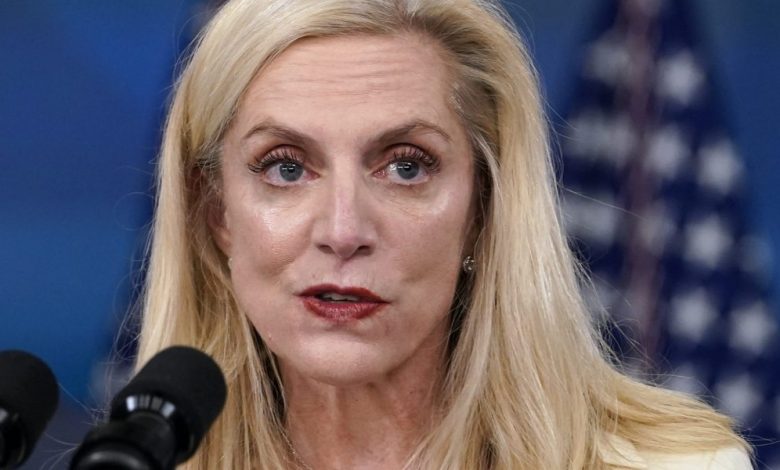Biden names Lael Brainard to head National Economic Council: source

President Joe Biden plans on Tuesday to nominate Federal Reserve Vice Chairman Lael Brainard as the new director of his National Economic Council, which will see the Ph.D. Economist a key person for coordinating policy, speaking with business leaders and negotiating with Congress.
Biden also plans to nominate longtime adviser Jared Bernstein to chair the White House Council of Economic Advisers, according to a government official familiar with the plans, who spoke on condition of anonymity as there has been no public announcement.
Brainard and Bernstein would rise to the top at a crucial point for the US economy. Unemployment is near a 54-year low at 3.4%, but inflation remains persistently high at 6.4% and has added to fears of a coming recession.
Brainard would succeed Brian Deese, who helped deliver several key legislative wins for Biden, including coronavirus relief, infrastructure spending and investment in computer chip production.
Brainard, 61, has a PhD in economics from Harvard University. During the Clinton administration, she served as deputy director for the National Economic Council. She also served as Undersecretary for International Affairs at the Treasury Department during Barack Obama’s presidency. Brainard joined the Fed as governor in 2014 and Biden appointed her vice chair.
She also forms half of a power couple in the administration with her husband, Kurt Campbell, who serves as the administration’s “Asian czar” on the National Security Council.
Bernstein already serves on the Council of Economic Advisers, where he would succeed current chair Cecilia Rouse, who is returning to Princeton University. With an interest in labor markets and income inequality, Bernstein served as Vice Presidential Assistant to Biden during Obama’s presidency.
Brainard’s departure from the Fed comes at a difficult time as the central bank seeks to balance its fight against inflation without going so far as to create a worse recession than necessary. Brainard has been a leading “deaf” voice, meaning she typically supports lower interest rates to boost employment. (“Hawks” are more likely to push for higher interest rates to fight inflation).
In a speech last month, Brainard argued that taming inflation might not require “pains” in the labor market in the form of widespread layoffs, which other Fed officials, including Fed Chair Jerome Powell, have warned against. Instead, she said companies could be forced to lower prices and squeeze their profit margins if consumer demand slacks, which would help bring down inflation.
However, President Biden has appointed three more members of the Fed’s board of directors, so Brainard’s departure will not deprive the central bank of its dodging votes.
Brainard has also supported stricter financial regulations than Powell. When Randal Quarles was the Fed’s chief financial regulator — appointed by President Donald Trump — Brainard cast about 20 dissenting votes on regulatory issues.
She has also expressed support for the idea that the Fed could do more to get banks to consider the risks that climate change poses to their financial health. Climate activists warn that increasing damage to homes, commercial buildings and other property will cause banks greater financial losses and should be taken into account when assessing their safety and soundness.
Under Powell, who is not a trained economist, the Fed’s vice chairman was typically someone with a deep background in monetary economics, such as Richard Clarida, Brainard’s predecessor. Clarida was an economics professor at Columbia University and a consultant to PIMCO, a securities trading firm.
Learn how to navigate and build trust in your organization with The Trust Factor, a weekly newsletter exploring what leaders need to succeed. Login here.



